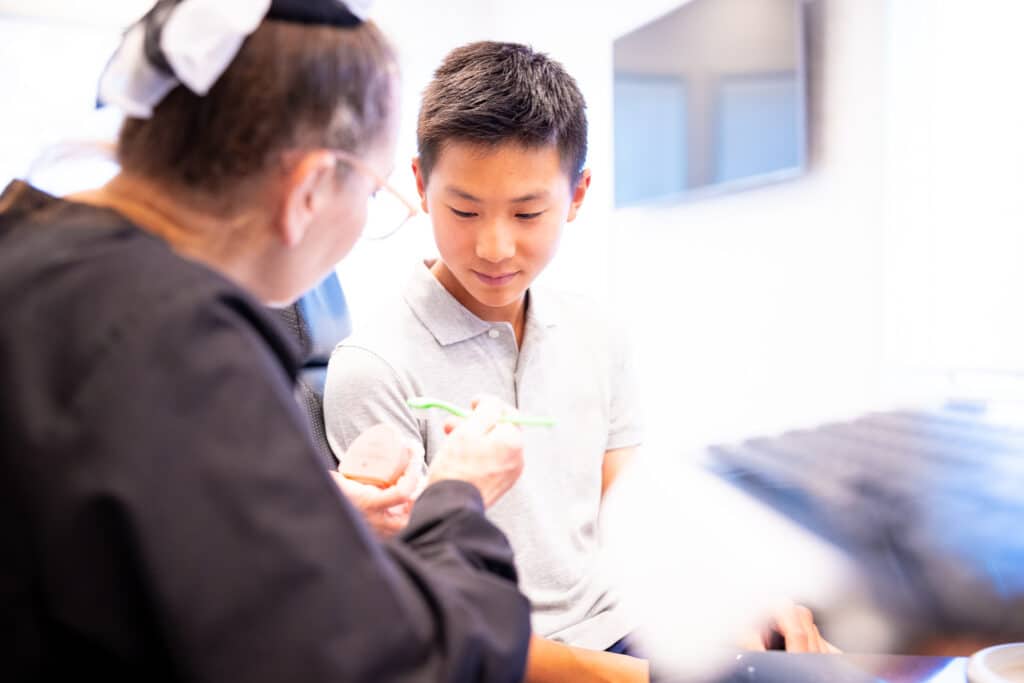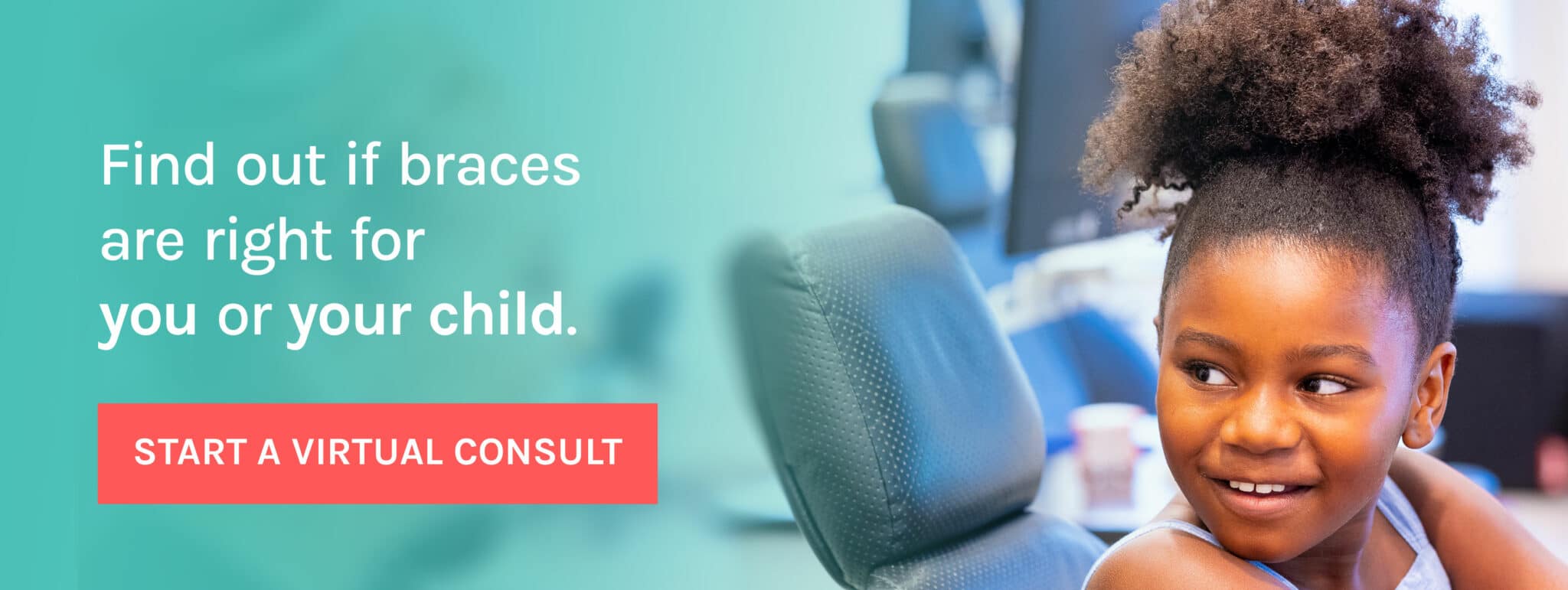Do braces cause canker sores? Although canker sores (also called mouth ulcers) don’t have a definitive cause, they do tend to pop up in braces patients, particularly right after the braces are placed on the teeth.
At Sacks Orthodontics, we know canker sores are common for patients with braces and sometimes with clear aligners. While they can look strange and feel uncomfortable, they are only temporary, and there are remedies available to alleviate pain and speed up the healing process.
You may be wondering what a canker sore is, how you get them and how you can get relief from them. Sacks Orthodontics is here to help!
A canker sore is an ulcerated lesion inside the mouth, usually on the inner cheek, inside the lips, under the tongue, or at the base of the gums. Canker sores have a white center surrounded by red borders, and the area around the sore can often be swollen. It is a painful ulcer that can pop up randomly.
Many patients ask us if braces can cause canker sores. The cause of canker sores isn’t completely understood, but mouth irritation or injury does appear to create or exacerbate canker sores. Some of the possible reasons include:
You may get canker sores right after getting your braces. That’s because your mouth isn’t used to having that hardware in it. Over time, your cheeks and inner mouth will “toughen up,” and you should see a reduction in mouth sores. So it is possible that your braces can cause canker sores.
Until then, the movement of your cheeks and lips over the new hardware could irritate the inside of your mouth. Canker sores may develop as a result of that irritation. They tend to last about a week before disappearing. If you have a large canker sore that doesn’t disappear after a week or two, contact Sacks Orthodontics. We can take a look at it and make recommendations.

People sometimes get confused about the difference between cold sores and canker sores. One can be caused by braces, while a virus causes the other.
Cold sores form on the outside of the mouth above or on the lips. They sometimes can form inside the mouth. Unlike canker sores, which look like ulcers, cold sores are fluid-filled blisters. They are sometimes called fever blisters and are created by the herpes simplex virus type 1. Unlike canker sores, this virus is very contagious, which aren’t contagious. Because a herpes virus causes them, you can’t get cold sores from braces.
Cold sores, sometimes called fever blisters, can be spread by saliva, so it’s important not to share drinks or straws with someone if you have a cold sore. While braces don’t cause cold sores, they can be aggravated by them. Cold sores usually disappear within a few days, although they can linger for a couple of weeks. Unfortunately, the virus can linger, as well, which means cold sores can return. They can be triggered by excessive sun exposure, fever, colds, flu, hormonal changes, or facial injuries.
Finding ways to treat or prevent them can be tricky because it’s not certain exactly what causes a canker sore. You can do some things to reduce the chances of getting a canker sore.
What happens if you get a canker sore? In general, they have to go away on their own, but there are ways to alleviate the pain of the canker sore and speed the healing.
There are other medications and treatments for more severe canker sores. Call our office if you’re a patient of Sacks Orthodontics and your canker sore doesn’t go away after more than a week or is excessively large or severe.
Canker sores can be painful, but as your mouth toughens up, you should see a serious reduction in the number of canker sores. They may even stop altogether. If you have questions about braces and you are in or around the Livingston, NJ area, contact us at Sacks Orthodontics. We are always here to help!
